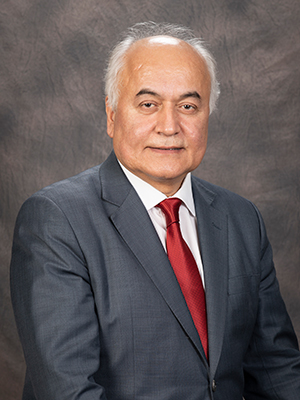- Professor, Mechanical Engineering
- Member, National Academy of Engineering
- Halliburton Chair in Engineering Professor
- University Distinguished Professor
- Affiliated Faculty, Materials Science & Engineering
- Phone: 979-862-3967
- Email: aerdemir@tamu.edu
- Office: MEOB 115
- Website: Research website
- Linkedin: Ali Erdemir

Educational Background
- Ph.D., Materials Science and Engineering, Georgia Institute of Technology — 1986
- M.S., Materials Engineering, Georgia Institute of Technology — 1982
- B.S., Metallurgy, Istanbul Technical University, Istanbul — 1977
Research Interests
-
- Bridging scientific principles with engineering innovations
- Developing new materials, coatings, and lubricants for a broad range of cross-cutting applications
- Studying mechanisms that control friction, wear and lubrication - including advanced surface technologies and lubricant chemistries
- Upcycling plastic wastes into lubricating oils in a green and continuously recyclable manner
- Designing and manufacturing new materials, coatings, and lubricants for safety, efficiency, and reliability in electric vehicle applications
Certifications & Memberships
- Fellow, American Society of Mechanical Engineers
- Fellow, European Academy of Sciences - 2024
- Member, European Academy of Sciences and Arts - 2022
- Fellow, National Academy of Inventors - 2022
- Member, National Academy of Engineering - 2019
Awards & Honors
- Tribology Trust Gold Medal - 2024
- Honorary Doctorate, Istanbul Technical University - 2024
- Tribochemistry Award, Japanese Tribology Society (JAST) - 2023
- International Award, Society of Tribologists and Lubrication Engineers - 2020
- Distinguished Tribologist Award, Society of Japanese Tribologists - 2020
Selected Publications
- “Electric Vehicle Tribology”, Elsevier, Amsterdam, 2024, ISBN: 9780443140747.
- 2D materials for durable and sustainable electric vehicles, Nature Reviews Materials, (2024): pp. 1-3
- Se Nanopowder Conversion into Lubricious 2D Selenide Layers by Tribochemical Reactions, Advanced Materials, 35(2023) 2302076
- Achieving ultralow friction and wear by tribocatalysis: enabled by in-operando formation of nanocarbon films, ACS Nano, 15(2021) pp. 18865–18879.
- Synthetic lubricants derived from plastic waste and their tribological performance, ChemSusChem, 14(2021) pp. 4181-4189.